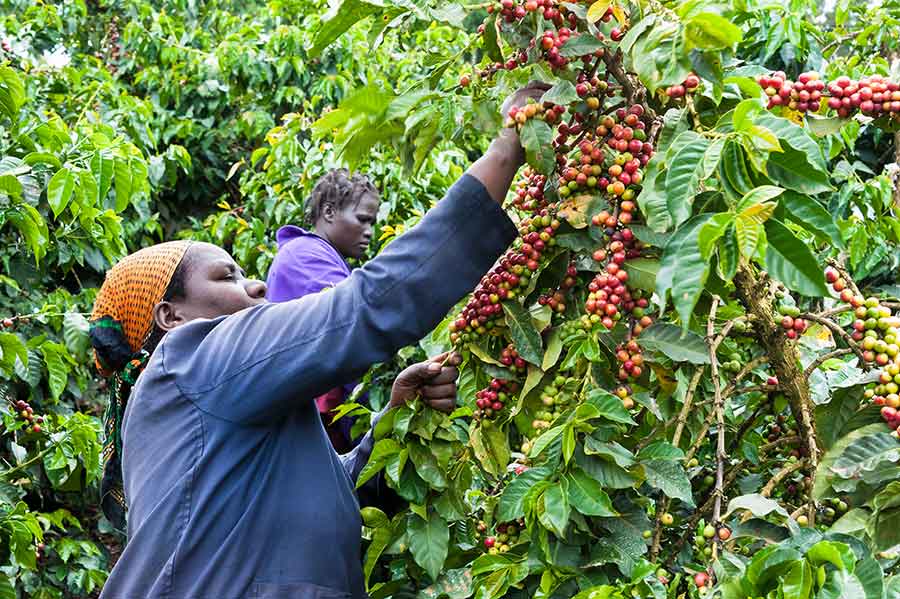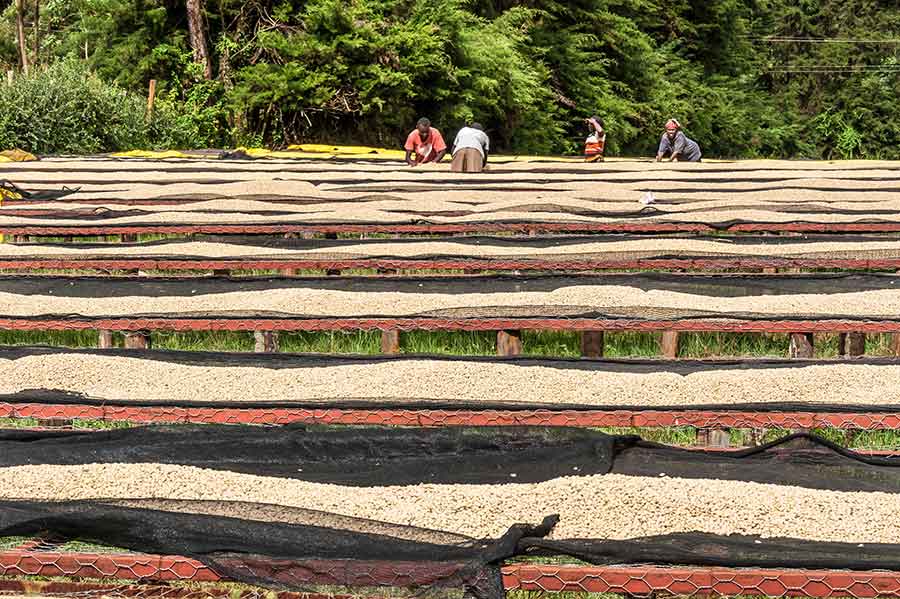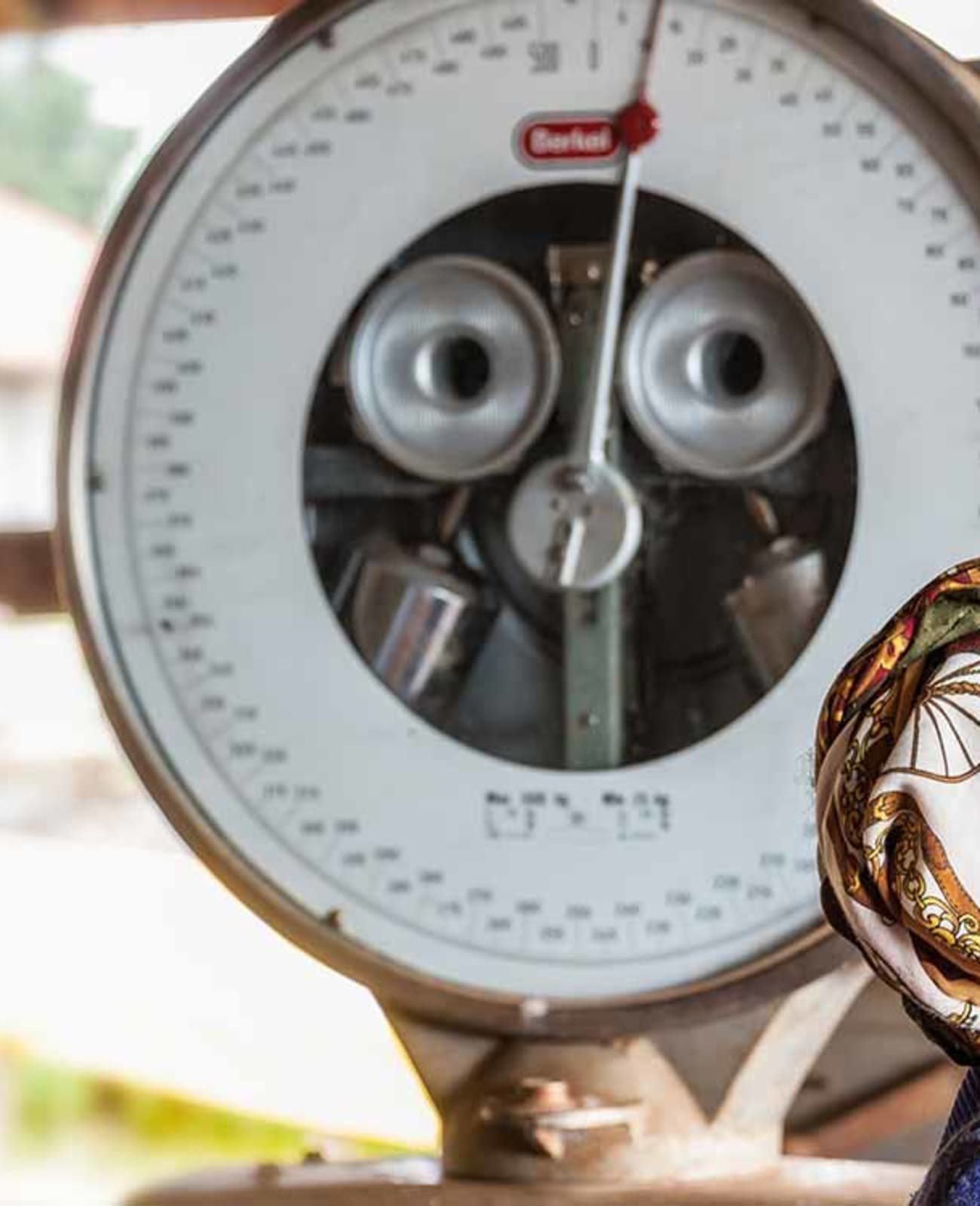We’re back in Kenya to bring you a delicious coffee from Kianyangi, a washing station which has previously won the Dorman Quality Competition for the Embu district.
The Kianyangi washing station (or ‘factory’ as they’re known in Kenya) is owned by the Murue Farmers Cooperative Society. The co-op is made up of around 750 farmers, with each growing around 130 trees on their farm.
Kianyangi washing station is located in Kavutiri, near the city of Embu in the Eastern Province of Kenya. The region borders the iconic Mount Kenya and Kamithumo river, which is the primary water source for coffee processing at the factory.
The main harvest for Kianyangi is from November to March. The farms sit at an average altitude of 1,800m above sea level, and their rich volcanic soil and ideal conditions to produce exceptional coffee. Most of their trees are SL28 and SL34 varietal; and around 10% is Ruiru 11.
 Photo: Melbourne Coffee Merchants
Photo: Melbourne Coffee Merchants
Processing coffee at Kianyangi
After picking, ripe coffee cherry is brought to the washing station by smallholder farmers before it’s processed to remove the skin and pulp: what’s known as wet processing.
Five soaking pits have been established for wastewater management, and any waste water is also recirculated.
The factory uses a disc pulper with three separate discs to remove the skin and fruit from the inner parchment layer that is protecting the green coffee bean.
After pulping, the coffee is fermented overnight to break down the sugars, after which the cherry is cleaned and soaked for a further 24 hours. This process increases the proteins and amino acids, increasing the complexity of the acidity and clarity in the cup.
 Photo: Melbourne Coffee Merchants
Photo: Melbourne Coffee Merchants
The coffee is then spread out on the raised drying tables. Time on the drying tables depends on climate, ambient temperature and volumes under processing, and can take from 7–15 days in total.
Improving quality
Like Kiamabara who we’ve previously featured, Kianyangi currently receives assistance from Coffee Management Services (CMS), who have been on the ground directly helping producers improve their farm’s productivity and quality through training and education programs.
In addition farmer members can get access to financing through free advances on payments before the season starts. The objective of the service is to establish a transparent and trust-based relationship with the smallholder farmers, helping to support sustained industry growth. Doing this helps drive continued improvements in quality which will earn the farmers a premium over lower quality crops.






